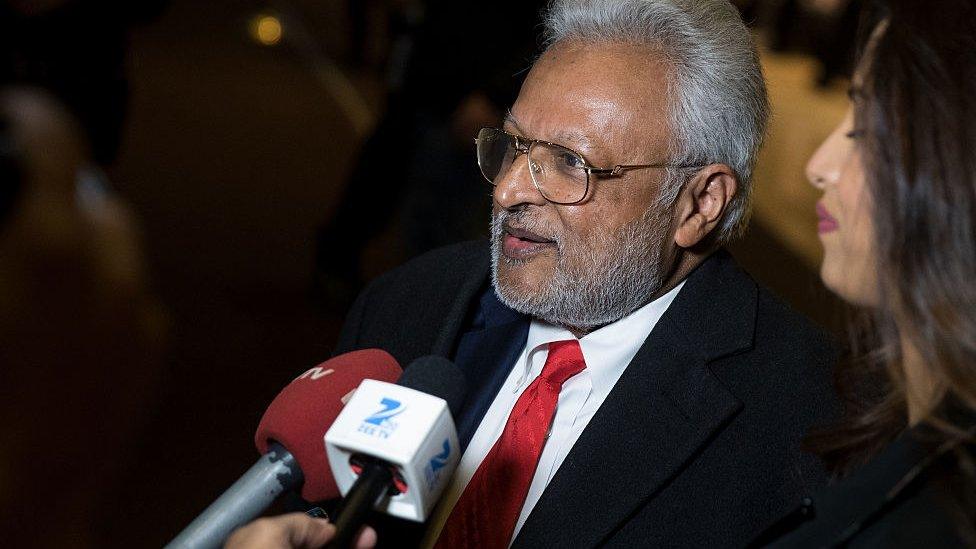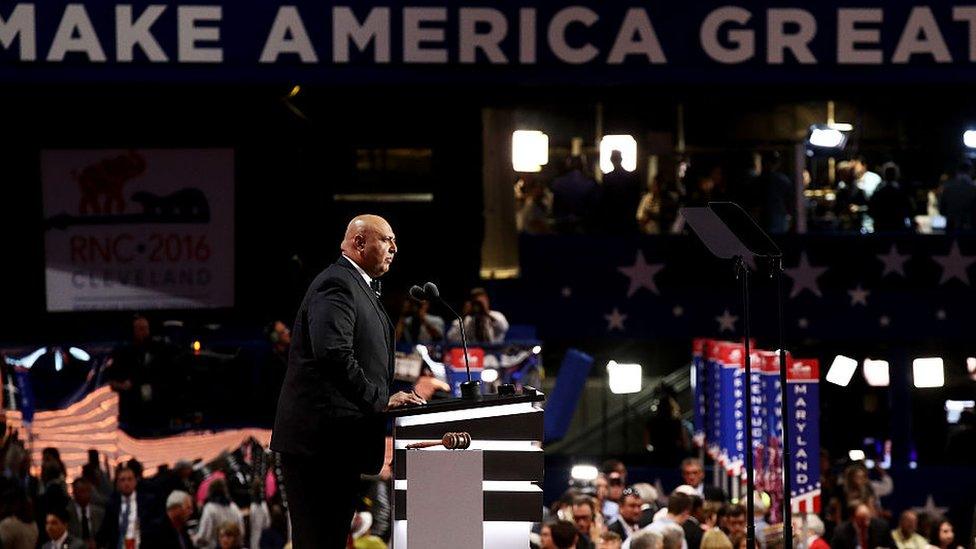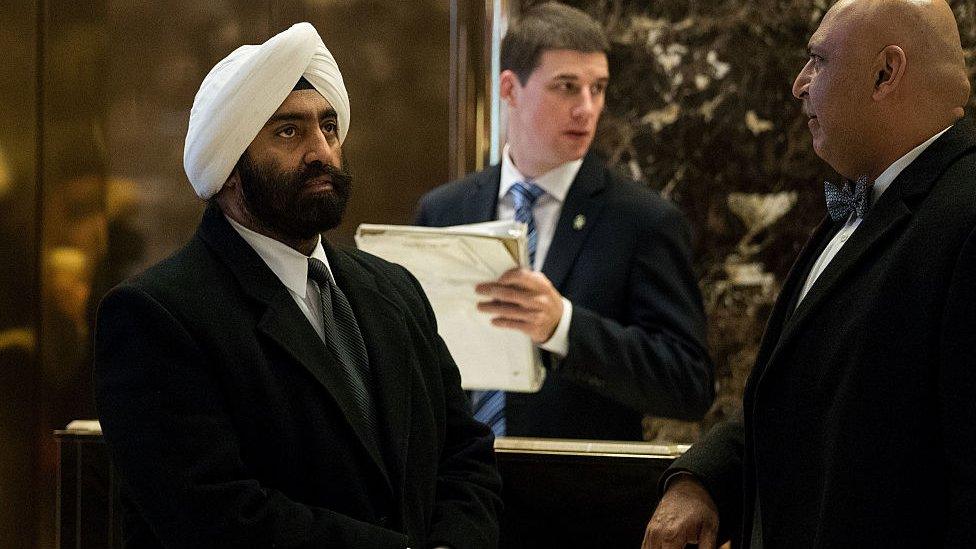Trump's Hindu, Sikh and Muslim power brokers
- Published

Shalabh Kumar, founder of the Republican Hindu Coalition,
When Indian-American industrialist Shalabh "Shalli" Kumar donated close to a million dollars to the Trump campaign, many in the community dismissed it as a poor investment.
But today, Mr Kumar is the go-to guy not just for Indian-Americans chasing opportunities in the new administration but apparently for the Indian officials seeking contacts with Trump aides.
A leading Indian TV channel NDTV introduced him as "the man with a direct line to Trump" on their show. Another top-ranking Diaspora website, The American Bazar, has called him "the most influential Indian-American power broker" in DC.
And Kumar isn't complaining about this new celebrity status. "I would like to be the bridge between the two sides," he told the BBC. "I have arranged two big meetings between Indian officials and leading figures in the Trump team."
A majority in the Indian immigrant community have traditionally supported Democrats and Trump's anti-immigrant campaign rhetoric seemed to have further alienated many.
Kumar says he and his Republican Hindu Coalition mobilised Hindu Indian-Americans votes in swing states like Florida.
Their message? Trump was the anti-terrorism candidate, and would help India and US see greater collaboration in defence, energy and manufacturing.
Trump's anti-Muslim rhetoric did appeal to some Hindus, but whether that actually swayed the community at large is unclear.
Kumar is not the only one whose stock has soared with a Trump victory.
Pakistani-American Sajid Tarar, who is a Muslim, and Sikh-American Jesse Singh, sided with Mr Trump at the peak of his anti-Muslim barbs. They were pilloried by their own communities for doing so. One exit poll, external suggested more than three-quarters of Muslims voted for Clinton.
Mr Tarar's Facebook inbox used to be swamped with negative messages, calling him a "disgrace to Pakistan and Islam".
But on the morning of 9 November, his phone wouldn't stop ringing. Mr Tarar had more than 80 messages congratulating him on Mr Trump's victory and how he had made Pakistan proud.

Sajid Tarar, founder of Muslims for Trump, at the Republican National Convention
He says the Pakistan embassy reached out to him to facilitate a call between Pakistani Prime Minister Nawaz Sharif and the President-elect.
"I sent out a few emails and the call happened," says Mr Tarar, a real estate businessman.
"The ambassador later called to thank me."
Mr Singh was branded a "traitor" for supporting Trump and claims to have been subjected to "personal attacks at community gatherings".
"I was always confident that he would win. But I also realised that when he wins, our community will be nowhere on his radar.
"So, despite all the hate messages I decided to stick with him,'' says Mr Singh.
Both Mr Tarar and Mr Singh have been approached by community members with resumes, looking for jobs in the new administration.
On Saturday, they were also part of the group leading the prayers at the National Cathedral as part of Mr Trump's inauguration celebrations.
Kumar, Tarar and Singh were high-profile examples of diverse supporters for the Trump campaign, which relied primarily on a predominantly white support base to win the election.
But with the need for photo-ops gone, will there still be a role for them in the coming days?
Mr Kumar, who was part of the transition team on finance, says he is working to triple the amount of trade between the US and India and create jobs in both countries.

Jesse Singh, founder of American Sikhs for Trump, arrives at Trump Tower
He's made three trips to India since the election results were announced. His Twitter account has a picture of him hugging Indian Yoga guru Baba Ramdev, mentioning a discussion to create 100,000 yoga related jobs in the US.
Those tagged in the tweet are the Indian Prime Minister, Narendra Modi, Mr Trump's daughter Ivanka Trump, his treasury secretary nominee, Steven Mnuchin, and former speaker Newt Gingrich.
He says he's always been a strong advocate for "establishing a Hindu-American voice on public policy".
Does that mean seeking a position in the Trump administration?
"I have been my own boss in the past 44 years. But I will be happy to help where I can be most of service,'' says Mr Kumar, adding it would be too premature to talk about specific posts.
When probed further, he did seem interested in the ambassador's job to India or a position in the commerce department.
For Tarar, the state's department's Special Representatives to Muslim Communities, or as envoy to the Organisation of Islamic Cooperation (OIC) would be Trump administration posts worth aspiring to.
But if he doesn't get the job "it will not be end of the world".